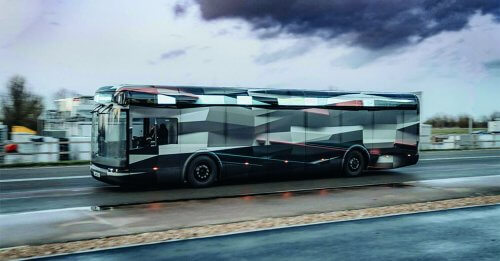
Details of new vehicle orders as part of the Scottish Ultra-Low Emission Bus Scheme have been revealed
In last week’s news pages, we reported on some of the headline announcements as part of the latest round of Scottish Government funding through its Scottish Ultra-Low Emission Bus Scheme (SULEBS), which has seen £40.5 million awarded to operators across the country.
The largest investment yet through the SULEBS programme will support operators in replacing a total of 215 diesel buses with new battery-electric ones, compared to 57 buses supported through the first round of funding. To help meet demand, the intended budget for the second round was increased by £15 million. The lion’s share – 172 – of the buses is to be built by Alexander Dennis (ADL) in Falkirk, with others will be supplied by Yutong, via its UK dealer Pelican Engineering in Castleford, West Yorkshire, and new market entrant Arrival.
The full break down of orders announced is:
- First Glasgow: 35 ADL single-deck, 91 ADL double-deck buses and infrastructure. (Total funding awarded to date: £24,301,840)
- McGill’s Bus Service: 33 Yutong single-deck buses and infrastructure (Total funding awarded to date: £6,011,718)
- Ember: Six Yutong single-deck and four Arrival single-deck buses and infrastructure. (Total funding awarded to date: £1,302,634)
- Stagecoach West Scotland: 15 ADL single-deck buses and infrastructure. (Total funding awarded to date: £2,666,359)
- Stagecoach East Scotland: Nine ADL single-deck buses and infrastructure. (Total funding awarded to date: £2,181,663)
- Stagecoach Bluebird: 22 ADL double-deck ADL buses and infrastructure. (Total funding awarded to date: £4,079,134)
CPT Scotland Director Paul White welcomed the additional funding: “This announcement highlights the commitment of Scotland’s bus sector to decarbonisation,” he said. “The £40.5m awarded by Government will be met with investment of over £80m from bus companies to fund these 215 vehicles.
“CPT will continue to work with Scottish Government to create an operating environment that prioritises sustainable and active travel, frees buses from congestion and maximises the benefits of this investment.”

